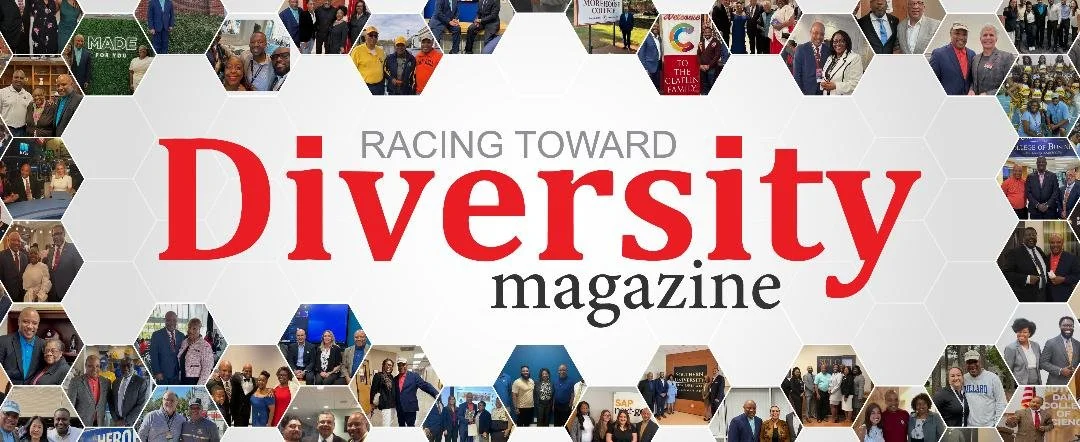As of December 1, 2023
57 "Visiting Professor" on campus visits to 40 different colleges - covering 15 states, District of Columbia and the Virgin Islands
With potential student exposure of 240,811
Two "Virtual Career Fairs" (February 23rd and September 27th)
Reached 82 HBCU campuses and 160 "Other Colleges and Universities"
Total registration = 1,393 students and alumni
Topics discussed Jobs, Careers, Internships, Corporate Strategic Partnerships, Resume, LinkedIn, Alumni Jobs, Hiring At Scale
Mobile Classroom schedule Italic= visited
1) North Carolina A&T, Greensboro, NC Thursday, January 12, 2023 #HBCU
2) Campbell University, Buies Creek, NC – Friday, January 13, 2023
3) Tuskegee University, Tuskegee, AL – Thursday, January 26, 2023 #HBCU
4) Fisk University, Nashville, TN - Wednesday, February 1, 2023 #HBCU
5) South Carolina State, Orangeburg, SC - Wednesday, February 8, 2023 #HBCU
6) Claflin University, Orangeburg, SC – Thursday, February 9, 2023 #HBCU
7) Allen University, Columbia, SC - Friday, February 10, 2023 #HBCU
8) Ferrum College, Ferrum, Virginia, February 13, 2023
9) University of Southern Mississippi, Hattiesburg, MS - February 15, 2023
10) Southern University of New Orleans, New Orleans, LA - Thur, February 16, 2023 #HBCU
11) Dillard University, New Orleans, LA - Friday, February 17, 2023 #HBCU
12) Bowie State Wednesday, February 22, 2023 (CIAA Tournament) #HBCU
13) Howard University, Thursday, February 23, 2023 (CIAA Tournament) #HBCU
14) Morgan University, Friday, February 24, 2023 (CIAA Tournament) #HBCU
15) Winston Salem State University, Feb 24, (CIAA Tournament – Baltimore, MD) #HBCU
16) Saint Augustine's, Raleigh, NC, March 24, 2023 #HBCU
17) Shaw University, Raleigh, NC, March 24, 2023 #HBCU
18) South Carolina State University, Orangeburg, SC, March 29, 2023 #HBCU
19) Claflin College, Orangeburg, SC, March 29, 2023 #HBCU
20) Southern Univ Baton Rouge Chancellor’s Golf Scramble! Friday, March 31, 2023 #HBCU
21) Winston Salem State University, Winston Salem, NC, April 4, 2023 #HBCU
22) Morehouse College, Atlanta, GA, Wednesday, April 11, 2023 #HBCU
23) Clark Atlanta University, Atlanta, GA, Wednesday, April 11, 2023 #HBCU
24) Spelman College, Atlanta, GA, Wednesday, April 11, 2023 #HBCU
25) Johnson C. Smith University, Charlotte, NC, Monday, April 24 #HBCU
26) Livingstone College, Salisbury, NC Tuesday, April 25 #HBCU
27) Fayetteville State, Fayetteville, NC Wednesday, April 26 #HBCU
28) Winston Salem State Univ, May 25, Chancellor Elwood Robinson VIP Reception #HBCU
29) Winston Salem State, May 27, Charlotte Motor Speedway/ RACING RAM DAY #HBCU
30) Norfolk State, Norfolk, Virginia, Wednesday 8, 2023, August 30, 2023 #HBCU
31) Hampton University, Hampton, Virginia, Thursday, August 31, 2023 #HBCU
32) Xavier University, New Orleans, Louisiana, Thursday, September 6, 2023 #HBCU
33) Dillard University, New Orleans, Louisiana, Friday, September 7, 2023 #HBCU
34) Southern University, New Orleans, Friday, September 7th and 8th, 2023 #HBCU
35) Jackson State University, Jackson, Mississippi, Saturday, September 8, 2023 #HBCU
36) South Carolina State University, Orangeburg, SC, Sept 12, 2023 #HBCU
37) Claflin College, Orangeburg, SC, Sept 12, 2023 #HBCU
38) Allen University, Columbia, SC – Thursday, Sept 14, 2023 #HBCU
39) Benedict College, Columbia, SC, Friday, Sept 15, 2023 #HBCU
40) University of South Carolina, Columbia, SC, Friday, September 15,2023 #HBCU
41) Livingstone College, Salisbury, NC, Friday, September 22, 2023 #HBCU
42) Clinton College, Rock Hill, SC, Friday, September 22, 2023 #HBCU
43) Bennett College, Greensboro, NC, Founders Day, Friday, October 6, 2023 #HBCU
44) Livingstone College, Salisbury, NC, October 13, 2023 #HBCU
45) Alabama A&M vs Alabama State, Magic Classic, Birmingham, Ala, Fri, Oct 27 #HBCU
46) Alabama A&M vs Alabama State, Magic Classic, Birmingham, Ala, Sat, Oct 28 #HBCU
47) South Carolina State vs Howard Univ, Homecoming, Orangeburg, SC, Sat, Nov 4 #HBCU
48) University of Virgin Islands, US Virgin Islands, Monday, November 6th thru 8th #HBCU
49) Prarie View A&M Univ, Prarie View, Texas - Guest Speaker via zoom, Nov 15 #HBCU
50) Fort Valley State University, Fort Valley, Georgia, Thursday, November 16 #HBCU
51) The Bayou Classic, Grambling University vs Southern University Baton Rouge, New Orleans, Louisiana, Thursday, November 23 - 25th #HBCU
#Jobs, #Careers, #Internships, #StrategicPartnerships, #Resume, #LinkedIn, #AlumniJobs, #HiringAtScale



